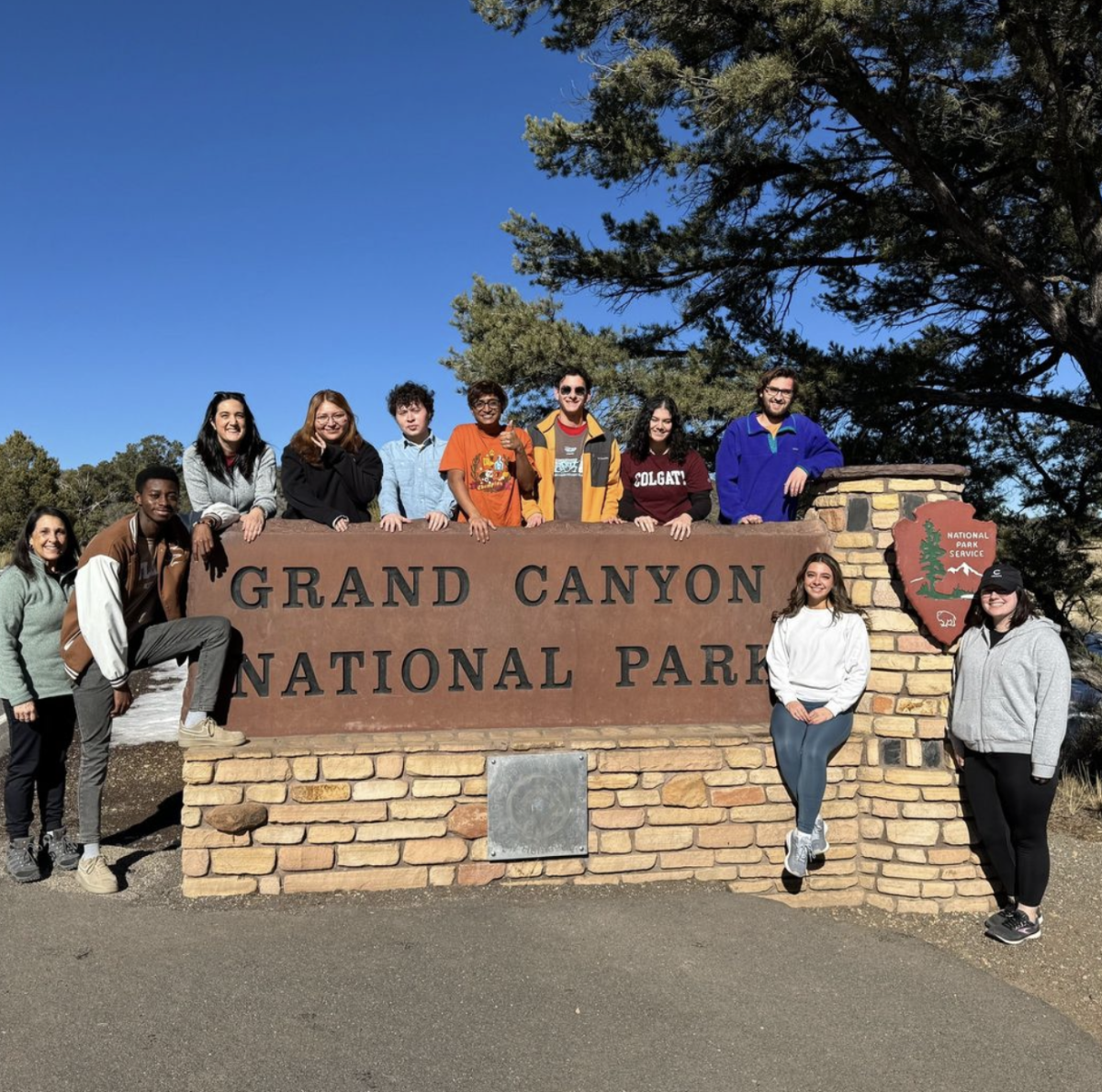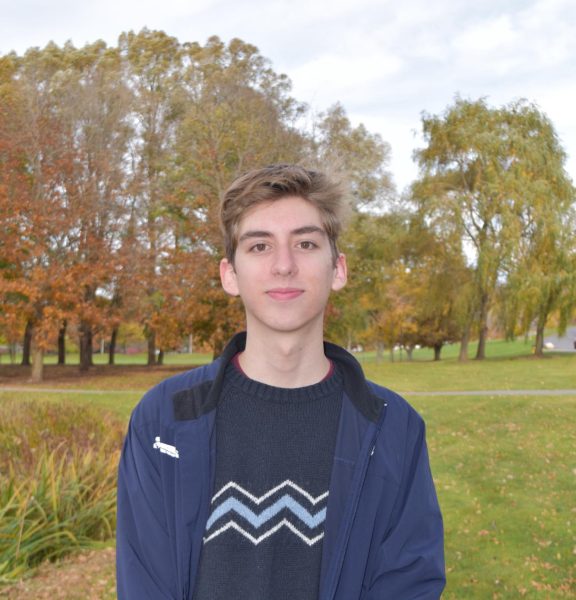The Colgate Max A. Shacknai Center for Outreach, Volunteerism and Education (COVE) was created to provide Colgate University students with opportunities for service and reflection upon many social issues. While the center offers a wide range of civic projects and volunteer opportunities, one opportunity in particular gives students the ability to take advantage of free time during winter and spring breaks to travel off-campus and explore social issues first-hand.
This past winter break, a group of Colgate students traveled to Tuba City, Ariz., on a trip titled “The Navajo Nation.” The group of nine students was immersed in Navajo life and culture. They were also able to explore the natural landscape of Arizona.
COVE Team Advisor Amy Jackowski shared that planning for the trip was a long process and included collaboration between the COVE and other organizations.
“Planning for the alternative winter break trip began in July with our organizing partner, Amizade. The trip application, interview and pre-departure meeting process took place over the fall semester with the trip running from Jan. 14 to 20,” Jackowski said. “A total of nine students participated in the trip. The COVE received additional support from the First@Colgate program in order to stretch sponsorship funds across a greater number of participants.”
First-year student Alana Greer chose to go on the trip to learn more about the Indigenous cultures of the Southwest United States, which she felt were not sufficiently covered in high school history classes.
“I was curious about all of the untold stories that are often overlooked in our education systems,” Greer said. “I also wanted to find parallels to my own native Hawaiian culture, and see what the efforts to preserve their traditions against American colonization look like.”
Meeting the Navajo people — who refer to themselves as the Diné — was an incredible experience for Greer.
“Their kindness and generosity [were] so inspiring. We were invited into their homes, ate home-cooked meals, learned their language, were included in their ceremonies and heard stories from Elders,” Greer said.
The immersive environment greatly differed from life at Colgate, which inspired junior Natalia Legname to apply for the trip.
“I was already involved with the COVE before attending the Arizona trip, but I was eager to take all that I’ve learned from my previous volunteering experience and apply it to a new community,” Legname said. “I’ve never traveled that far west before, nonetheless worked with an Indigenous community, so I was excited to jump into something completely different to expand my knowledge and appreciation of the world around me, as well as contribute to my personal growth.”
While the trip was only six days long, including travel, students were able to have very impactful experiences, one of which was taking part in a sweat lodge ceremony. The students sat together in a dome-shaped hut, completely sealed off from the outside. In the center was a pit containing hot lava rocks, which the hostess then poured water on, creating hot steam and extreme heat.
“In complete darkness, while trying to withstand the intense heat, we sang traditional Navajo songs, gave thanks and shared our vulnerable sides. I was so overwhelmed with emotions,” Greer said. “It was genuinely one of the most beautiful and spiritual moments I’ve ever experienced, and I’m so grateful I was able to feel that with my peers. I could feel the trust we had in each other, and it really bonded us in the most amazing way.”
The trip is an integral way for students to take part in things that are impossible to do inside a classroom or by reading a textbook, as well as extending and applying what they’ve learned to real-world situations.
“Hearing the words from those directly impacted by societal inequities made a huge impact on me,” Legname said. “I believe it’s so important to supplement classroom learning with an immersive experience; it really makes a difference in how you connect with those experiences and makes you much more able to empathize and understand those inequities.”
The trip gave Colgate students more perspectives with which to analyze their own lives, as well as a chance to look more closely at the stories of people and places around them.
“Our Navajo hostess, Vanessa, reminded us that everyone has a story to tell. So many colleges across the country, including Colgate, were founded on Indigenous lands. We as learners must recognize that there were people here before us, and it must be our responsibility to make sure their stories aren’t erased,” Greer said.
While the trip was not tied to a specific course, it is relevant to Colgate’s goals for students.
“We believe that our work supports Colgate’s tenth goal — to encourage and work with students to become engaged citizens and strive for a just society. Trips like this offer us the opportunity to imagine ourselves as local and global citizens both on and beyond our campus,” Jackowski said.
















